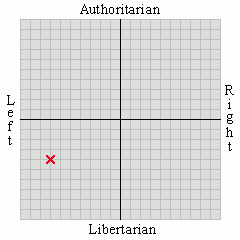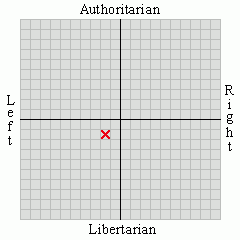In the classical definition, the liberal/conservative divide wasn't really a left/right thing necessarily:
- liberals advocated for government reform in some way.
- conservatives advocated for the existing government institutions in their current (or traditional) form.
These days, I think that "liberal" has become shorthand for "left wing" and "conservative" for "right wing", even in cases where the "conservatives" are the ones arguing for major governmental change and the "liberals" are arguing for keeping the government as it is.

- liberals advocated for government reform in some way.
- conservatives advocated for the existing government institutions in their current (or traditional) form.
These days, I think that "liberal" has become shorthand for "left wing" and "conservative" for "right wing", even in cases where the "conservatives" are the ones arguing for major governmental change and the "liberals" are arguing for keeping the government as it is.
Libertarian monarchist? Does such a beast exist?Big L means you are a follower of the Libertarian Party and remain a strict monarchist.






